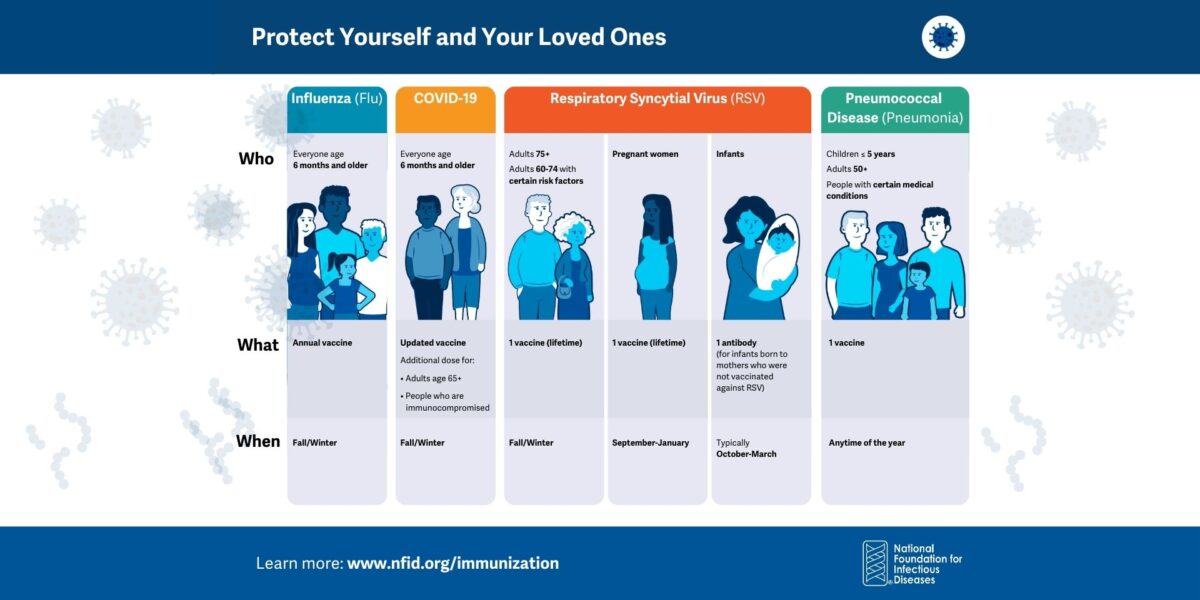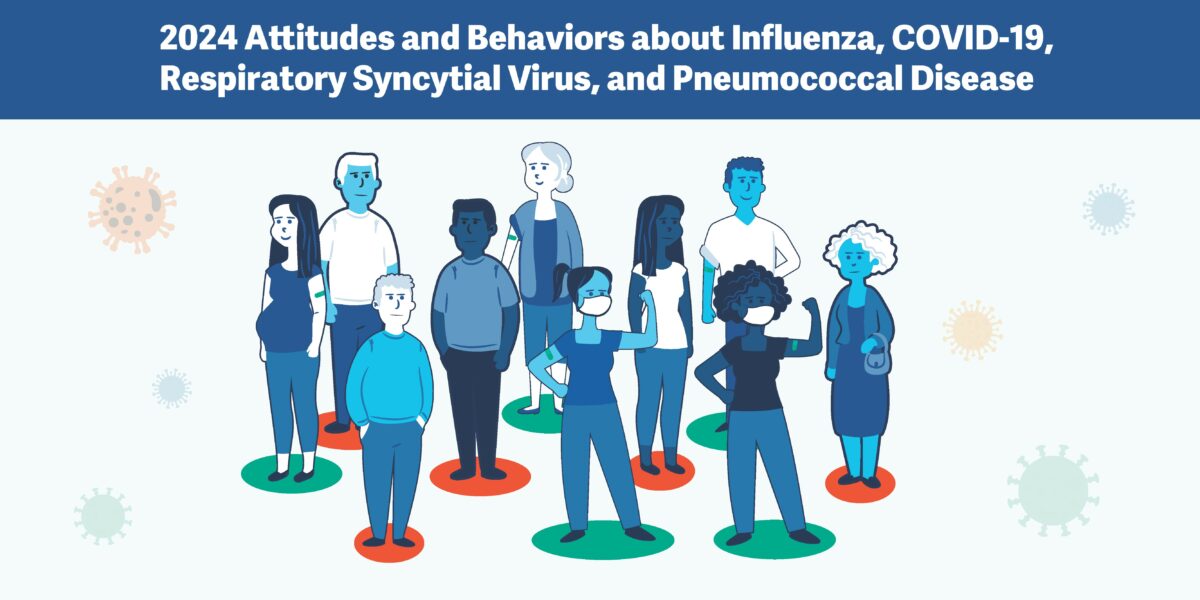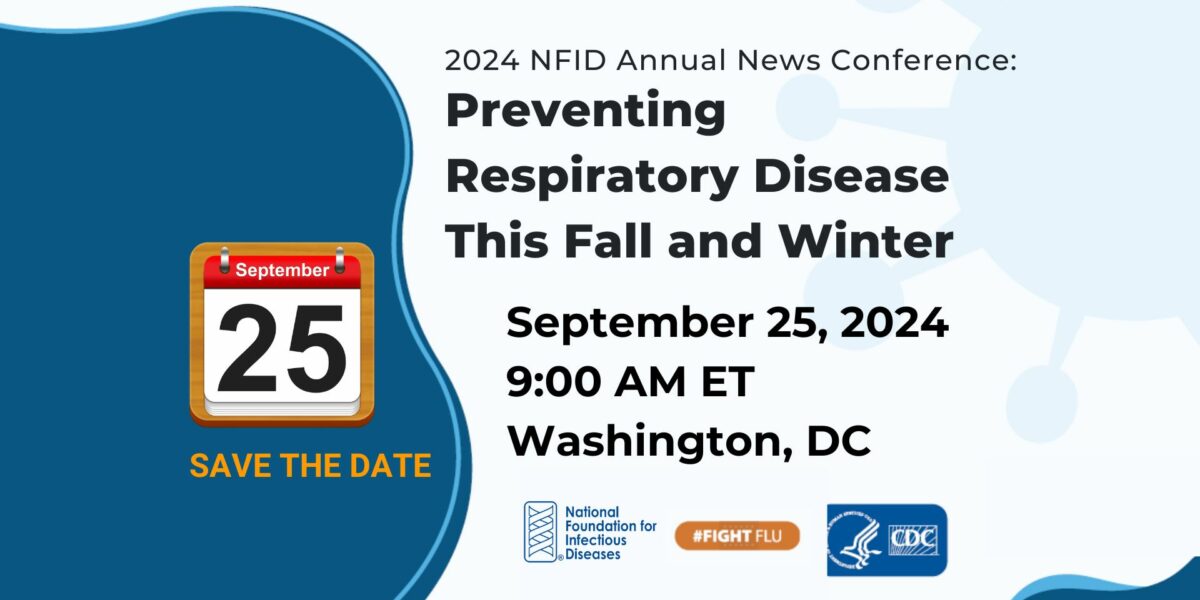Frequently Asked Questions about COVID-19
COVID-19 is a contagious disease caused by the SARS-CoV-2 virus.
COVID-19 most often causes respiratory symptoms similar to a cold, influenza (flu), or pneumonia but can also affect other parts of your body. Most people with COVID-19 have mild symptoms, but some people become severely ill.
More than 1 million people have died from COVID-19 in the US since the virus first emerged in Wuhan, China in December 2019.

General
Symptoms
Prevention
Testing
Treatment
Updated September 2024
Sources: American Academy of Pediatrics, Centers for Disease Control and Prevention, Food and Drug Administration
Learn more about coronaviruses at www.nfid.org/coronaviruses
Related Resources
Respiratory Immunization Graphics
Graphics and sample social posts to help raise awareness about preventing COVID-19, flu, RSV, and pneumococcal disease
What Is an Antiviral?
Overview of antivirals—what they are, how they work, and what diseases they help treat
2024 National Survey: Attitudes and Behaviors about Influenza, COVID-19, Respiratory Syncytial Virus, and Pneumococcal Disease
2024 national survey on flu, RSV, COVID-19, and pneumococcal disease






